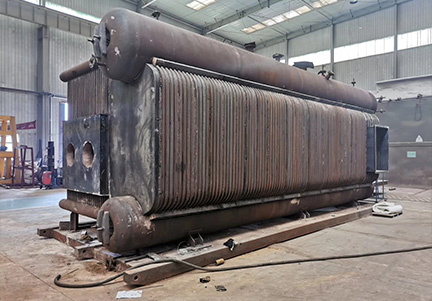Steam Boiler Solutions for Efficient Operations in Beer Production Facilities and Breweries
The Role of Steam Boilers in Beer Production
In the world of brewing, precision and efficiency play a crucial role in crafting the perfect beer. Among the various pieces of equipment essential to this process, steam boilers hold a significant position. Steam boilers are vital for various operations within a beer plant, providing the necessary heat and steam for brewing, sanitization, and other critical processes. This article delves into the importance of steam boilers in a beer plant factory and how they contribute to the brewing process.
The Brewing Process
To comprehend the significance of steam boilers, it is essential to understand the brewing process. Brewing involves several steps, including mashing, boiling, fermentation, and conditioning. Each of these steps requires precise temperature control and sometimes significant amounts of heat energy, which is where steam boilers come into play.
Mashing and Boiling
One of the first stages in brewing is mashing, where malted grains are mixed with hot water to create a mash. The process activates enzymes that convert starches into fermentable sugars. The accurate temperature control during mashing is crucial; a steam boiler can efficiently produce the necessary heat without the risk of scorching the grains.
Once mashing is complete, the mixture is transferred to the kettle for boiling. Boiling serves multiple purposes it sterilizes the wort, extracts flavors from hops, and evaporates undesirable compounds. Again, the steam boiler is essential here, as it provides a reliable source of heat, ensuring that the wort reaches and maintains the boiling point. Furthermore, the use of steam allows for a uniform heat distribution, reducing the risk of hot spots that can lead to flavor inconsistencies.
Sanitization and Cleaning
steam boiler for beer plant factory

Sanitization is a critical aspect of brewing, as any contamination can ruin an entire batch of beer. Steam is an excellent sanitation agent due to its high temperature. A steam boiler facilitates the production of steam that can be used to sanitize equipment, such as fermenters, kegs, and piping systems. The high-temperature steam effectively eradicates bacteria and other microorganisms, ensuring that the brewing environment remains sterile.
In addition to sanitization, steam is also employed in cleaning processes. Many breweries utilize steam cleaning systems that harness the power of steam to remove residue and contaminants from equipment surfaces. This method is not only efficient but also environmentally friendly, reducing the need for harsh chemicals.
Energy Efficiency and Sustainability
In recent years, the focus on energy efficiency and sustainability has become paramount in the brewing industry. Modern steam boilers are designed to be energy-efficient, utilizing advanced technologies to minimize fuel consumption. Additionally, many breweries are exploring options for utilizing biomass or waste heat recovery systems, making their steam production more sustainable.
Breweries that invest in high-efficiency steam boilers can expect reduced operational costs while also contributing to their sustainability goals. This economic advantage, coupled with the growing consumer demand for environmentally friendly practices in food and beverage production, makes energy-efficient steam boilers an attractive option for breweries.
Conclusion
Steam boilers are an indispensable component of any beer plant factory. They not only enhance the brewing process through efficient heat production and effective sanitization but also contribute to the sustainability and profitability of the brewery. As the brewing industry continues to evolve, the integration of advanced steam boiler technology will undoubtedly play a pivotal role in the craft of brewing, helping brewers produce high-quality beer while promoting energy efficiency and sustainability. Investing in the right steam boiler system is, therefore, a fundamental step for any brewery aiming to excel in the competitive beer market.
-
High-Efficiency House Hot Water Boiler Supplier & Factory Reliable House Hot Water Boiler Product SolutionsNewsJul.04,2025
-
Top Boiler Dealer & Supplier Quality Boiler Dealer Products from Factory DirectNewsJul.04,2025
-
High-Efficiency Waste Heat Recovery Boiler Expert Service & QuotesNewsJul.04,2025
-
Top Industrial Boiler Contractors Supplier & Factory Quality Products & ServicesNewsJun.10,2025
-
Panasonic Hot Water Boiler - Reliable & Energy Efficient Heating SolutionNewsJun.10,2025
-
Pennco Steam Boilers High-Efficiency & Durable SolutionsNewsJun.10,2025

